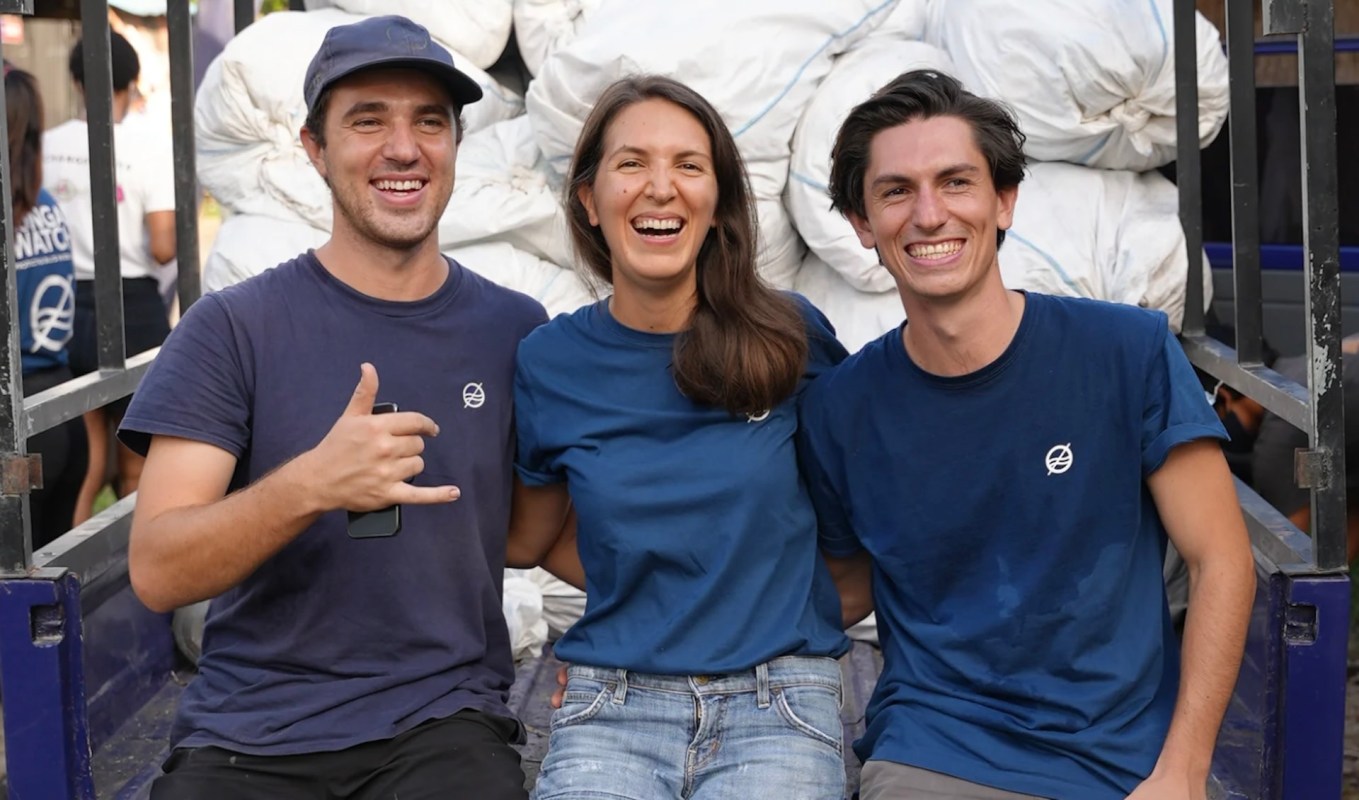Sungai Watch began small, but the family-run nonprofit based in Indonesia now has a team of more than 100 who are helping to clean up some of the world's most polluted rivers.
As detailed by Fast Company, the journey began for Sungai Watch co-founder Sam Bencheghib two decades ago, when he moved from France to Bali with his family and began noticing the otherwise Instagram-worthy island was "devastated with plastics."
Sam started to pick up litter on beaches with his siblings, Gary and Kelly, but they were hardly making a dent in the issue. This was because rivers were feeding trash into the ocean, whose tides would then wash the waste up on the shore.
In 2020, Sam, Gary, and Kelly founded Sungai Watch, and it took a bit of homemade ingenuity. The siblings constructed a "long, floating barrier," per Fast Company, that was connected by metal wire. They created a metal grid underneath the barrier to trap waste.
Happily, the contraption worked after being placed in a river near the siblings' home, preventing 110 pounds of plastic in a day from entering the ocean, the news outlet reported.
According to Sungai Watch's 2023 Impact Report, the nonprofit has now cleaned up 380 rivers in Indonesia and has collected around 1.1 million pounds of trash with its 268 barriers. It has also prevented nearly two million pounds of waste from entering the ocean.
Indonesia creates the second-largest amount of plastic pollution in the world after China, including more than 93,000 tons of single-use plastic bags annually, as noted by the UN Environment Programme. So, according to Sam, there's still a lot of work to be done to amend the issue.
"It feels like this is just a drop in the bucket," he told Fast Company of his nonprofit's work so far.
Indonesia consists of more than 17,000 islands, but Sungai Watch is operating on only two of them.
Plastic takes hundreds of years to break down, and it can create a lot of harm in the process, trapping or killing marine life and releasing toxic chemicals into our environment.
Indonesia is taking steps to combat this issue, though, with Channel News Asia reporting all single-use plastic products will be banned beginning in 2029.
Nonetheless, there's still tons and tons of waste to deal with, and Sungai Watch is going to be doing even more about it. In March, per Fast Company, the siblings launched Sungai Design, which turns river plastic into practical and beautiful products.
On its official website, the design company features "Ombak" lounge chairs — each made with 2,000 upcycled plastic bags.
Fast Company noted that 30 people are needed to make one chair per day at this time, but an infusion of funding is a promising development that could scale up production. In 2024, Sungai Watch was awarded $300,000 as a winner of the Elevate Prize, which is bestowed upon social entrepreneurs to help them maximize their impact.
The nonprofit also runs educational programs, organizes emergency cleanups with volunteers, and works with governments on waste management. The hope is that it will be able to cease operations in the long term, even though the problem of plastic waste is currently large.
"We really don't want to be cleaning rivers for the rest of our lives," Sam told Fast Company. "Our mission is to be out of business."
Join our free newsletter for cool news and cool tips that make it easy to help yourself while helping the planet.









